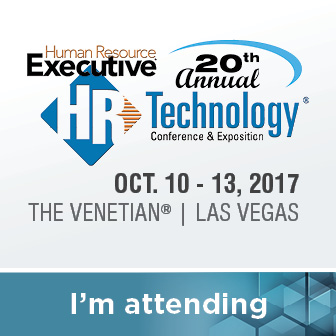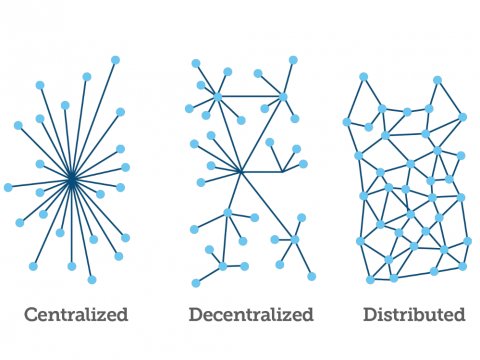HRE Column: Wrapping up HR Tech, and Looking Forward to 2018
Once again, I offer my semi-frequent reminder and pointer for blog readers that I also write a monthly column at Human Resource Executive Online called Inside HR Tech that can be found here.
This month, I take a look back at the recently concluded HR Technology Conference and review some of the key issues, themes, and the implications for the future of HR Tech that I took away from the world's largest gathering of the HR technology community. In the piece, take a look at some of the more interesting trends and themes in HR tech that we have been hearing about for some time now, and some newer ideas that have emerged in the last year or so. These issues, challenges, and opportunities will demand continuing focus for HR and business leaders in 2018 and beyond, and I imagine will be a big part of my planning for HR Tech in 2018 as well.
I was really pleased with the energy, insight, and most of all the amazing group of HR leaders who attended HR Tech a few weeks ago, as well as our first-class lineup of speakers and exhibitors. I can't thank you all enough for making this last HR Tech the best event in our history.
Moving forward, I am incredibly excited to get started working on HR Tech in 2018, and I will be sharing much of the concepts, ideas, and themes during the year on this blog, in the HRE Inside HR Tech column, as well as the HR Happy Hour Show.
Having said that, here's a taste of the HRE piece:
The HR Tech Conference held earlier this month serves almost as an annual report card, health check and starting point where HR technology will head in the next year, from the latest developments in mobile, analytics and cloud technology to a look at some of the technologies that are coming next, including artificial intelligence, augmented reality and even blockchain.
Reflecting on everything that went on at the conference, here are some thoughts about what HR and HRIT leaders should really have top of mind as 2017 winds down and organizations begin planning for 2018.
Cloud, Mobile, Analytics: Not "If?" but "When?"
If you look back over the past few years of HR-technology-trends articles, you'd find that the migration of HR systems to the cloud, adoption and greater rollout of mobile HR solutions, and an increased focus on HR analytics were mentioned in just about every piece. As the 2017 HR Tech Conference clearly demonstrated, all these trends/predictions starting in 2010 or so have been (or are in the process of being) realized in most organizations and by most HR technology providers.
The potential for increased HR innovations that arise from having a solid foundation of core HR systems is being realized by organizations of all sizes. And that is an important point as well. A quick check of the many cloud-based HR technologies that are specifically targeting and serving small- and mid-market businesses reveals that most innovative HR technologies are available to almost at any scale. And these so-called mid-market solutions have mostly been built from the ground up -- with cloud, mobile and analytics at their core.
Wellness, Experience, Productivity
During Josh Bersin's closing keynote at HR Tech, he talked about a couple of key trends that are combining to shape and direct more organizational attention and resources to employee and organizational wellness. The first is the idea of the overwhelmed employee: one who is barraged by a combination of incessant interruptions from email and smartphone notifications and apps, highly complex business systems and processes, and a general increase in working hours which all compound the challenge of achieving work/life balance. One of the strategies that HR leaders and organizations are increasingly adopting (and applying associated technology solutions to support these strategies) is more thoughtful and measurable programs to address and improve employee well-being...
Read the rest at HR Executive Online...
If you liked the piece you can sign up over at HRE to get the Inside HR Tech Column emailed to you each month. There is no cost to subscribe, in fact, I may even come over and re-surface your driveway, take your dog for a walk, rake up your leaves, and eat your leftover Halloween candy.
Have a great day and Happy First Day of November!

 Steve
Steve





